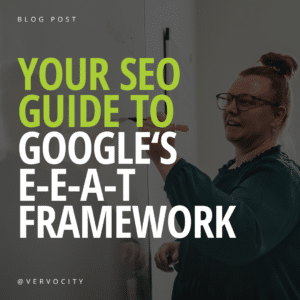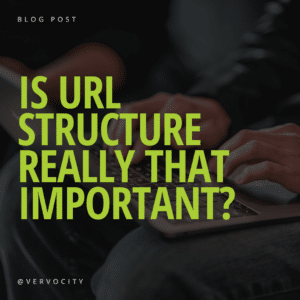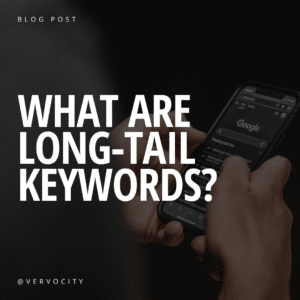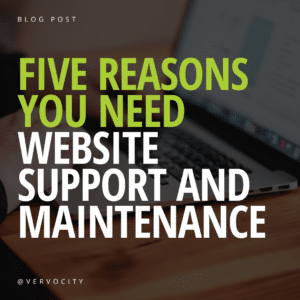Search engine optimization (SEO) is necessary for business owners who want to increase their visibility online and reach more customers.
A large percentage of people now rely on search engines when looking for products or services they need. A simple search query can provide thousands of results, but many people don’t scroll past the first page. That’s why it’s crucial to make sure your website appears in the top results of relevant keyword phrases and search queries.
This blog post will provide a comprehensive checklist of SEO tasks every business owner should be aware of in 2023. We’ll discuss how you can maximize visibility and organic traffic from search engines, like Google and Bing. With this guide as your reference point, you’ll be able to make sure your website is properly optimized and increase your online visibility.
Bookmark this tab so you can revisit the list below when you need it!
Google Business Profile
Search engines have slowly been replacing local listing publications, and Google has established itself as the most popular search engine. That’s why it’s important to utilize the free Google Business Profile service for your business.
With a Google Business Profile, businesses can provide customers with instant information, such as address, contact information, hours of operation, and a link to their website. Customers are also able to see reviews left by previous customers, which can positively affect their decision to work with you if the reviews are positive and helpful. Updated information and positive reviews also contribute to a higher rank for your Business Profile specifically in search and map results.
An optimized profile not only makes it easier for customers to find your business, it also allows Google to display more relevant search results to users based on their location and search intent. A well-optimized GBP can increase a business’s local search ranking and improve their chances of showing up in the Local Map Pack, which appears at the top of search results.
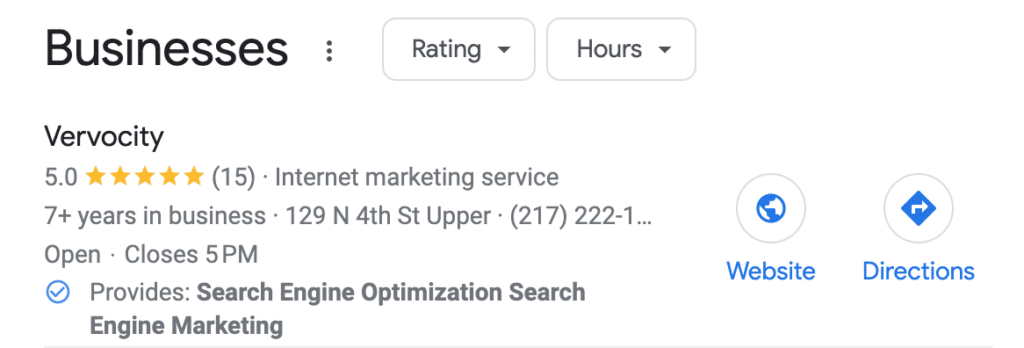
By having an enhanced, completed, and up-to-date Google Business Profile, businesses can improve their overall search engine presence and attract more organic traffic.
To learn more about how to effectively optimize your Google Business Profile, visit How to Optimize Your Google Business Profile.
Technical SEO
Technical SEO requires knowledge of how your website works. It is the process of optimizing the technical aspects of your site so search engines can easily index and crawl the information.
Site maps, schema code, no index tags, broken links, page errors, duplicate content, mobile-friendliness, and page speed are all aspects of technical SEO. If you’re just beginning with your strategy or are unsure of what each of these mean, start with the basics.
Fix any links within your content that no longer lead to a viable page or were entered incorrectly. Identify if and why visitors may receive a 404 Error when trying to access a page on your site. Avoid copying and pasting content from one page to another, or update old content if it is written too similarly to another website’s content.
Some websites require a more in-depth analysis of technical SEO issues. Contact your website host or an SEO specialist if you notice issues within your site that you cannot fix, slow load times, or search engine results that shouldn’t be there for your website.
Website Page Speed
Website page and load speed technically falls under technical SEO, but it’s so important that we decided to make it its own list point.
Page speed not only affects customer retention and bounce rate, it is also one of the highest ranking factors taken into consideration by search engines. A poor load speed will negatively impact your search engine rank and cause customers to leave your website.
In fact, according to a study by Portent, a website that loads in one second has a conversion rate 3x higher than a site that loads in five seconds. That’s a huge difference in conversions for a four second difference.
A positive user experience should be one of your top priorities for your website, and a fast load time will put you on the right track. If you’re currently experiencing slow load times, Google’s PageSpeed Insights tool will provide you with an analysis of your current site’s speed to help get you started on identifying ways to improve.
Keyword Research
Keyword research is part of setting the foundation for digital marketing campaigns. To help determine your targeted keywords, you first need to understand what your customers want and need from your business. By conducting comprehensive research, business owners can uncover the exact words and phrases that potential customers are using to search for products or services related to their business.
Online tools, like Moz, Ahrefs, and Google Search Console, can provide the data needed to identify which keywords are recommended and most commonly searched for in your industry. Once the most valuable (or profitable) keywords have been identified, content can be created that specifically targets those keywords, resulting in increased visibility and website traffic.
Understanding the language and interests of customers can help businesses make informed decisions on how to allocate their marketing resources and maximize their Return on Investment (ROI).
Keyword Optimization
Now that you know which keywords and keyword phrases are most important for your business, you can begin optimizing your content.
It’s important to recognize that you don’t want multiple pages of your website competing against each other for keyword rank. For example, if ‘curly hair salon near me’ is one of your target phrases, you don’t want to mention cutting or styling curly hair on every page. This will dilute your keyword, cause your website to compete against itself, and be repetitive for your customers.
Instead, try to identify one topic per web page. Then designate two to three keywords for that page. This will create organization within your site as well as provide search engines with a clear overview of your topic.
On-Page Errors
On-page errors can cause visitors to have a negative user experience and prevent your website from operating properly. The worst thing as a user is to be on a website that doesn’t function like it should. Google values user experience very highly, as it aims to satisfy the needs of the searchers using it. Some of the most common on-page errors include broken photos, broken internal links, improper heading usage, unoptimized titles and meta descriptions, and missing alt tags – to name a few.
If any of these errors sound familiar, don’t fret, they can be easily corrected. There are a variety of tools you can use to spot errors on your website, including website scanning programs or website plugins, like All In One SEO and Yoast. Depending on what your website was built on (i.e. WordPress, Wix, Square) the fixes shouldn’t be too hard to handle. Remember, if you don’t know how to complete a task on your website, feel free to contact one of our SEO experts for help!
Off-Page Integration
Off-page SEO includes optimizing channels outside of your website – or “off the pages.” For example, link building, business listings and social media marketing fall under off-page SEO.
When other businesses or websites add a link to your site within their content, it contributes to website credibility and link building. Search engines notice that other credible websites are linking to yours, which helps them recognize that your content is valuable and reliable for your customers.
While social media itself may not affect the rank of your website, the way in which you use it can. Including links to your website or blog posts within social media posts will direct more customers to your content. Your website will receive more clicks and organic traffic through the use of social media promotion. You’ll also reach a wider audience that may choose to follow your pages and engage with your content more.
If actions taken to improve your SEO outside of your website aren’t currently on your to-do list, now is the time to add them!
Google Analytics
Google Analytics provides valuable insights into the performance of your website.
Website owners can track various metrics, such as traffic sources, user behavior, engagement rate, bounce rates, and frequently visited pages. It can also provide a timeline of events, showing where customers entered and left your website. Knowing this data allows you to learn more about your audience and identity areas of improvement on your site.
Additionally, Google Analytics provides detailed data on keyword performance, allowing for adjustments and improvements based on real data rather than intuition.
Content Quality & Quantity
Good content is liquid gold not only for search engines, but for every user that is visiting your website. High-quality content attracts people to your website and encourages them to stay and explore more. The longer they stay on your website, the lower your bounce rate will be. This notifies search engines that your website is relevant and valuable.
Quality content is also more likely to be shared and linked to by other websites, social media platforms, and search engines. The authority and credibility of your site will improve with each external link or share. Relevance and originality also contribute to how search engines, like Google, rank your website. The more rich and engaging your content is, the more likely it is to be featured prominently in search results, making it easier for potential customers to find your site.
As far as content quantity, website pages should have no less than 300 words per page. Many websites should aim for around 600 to 700 words per page, but that isn’t always aesthetically possible. Blogs should be written with anywhere from 800 to 2,500 words. However, blog posts with 1,500+ words do seem to be preferred by search engines over posts with less than 1,500.
Conclusion
Effective SEO strategies take time. Do your research, identify your keywords, and create an optimization plan by following the recommended steps above. Remember, SEO is a marathon, not a sprint, and it will require continuous monitoring to stay up-to-date with the latest search engine trends.
Feeling overwhelmed? Let us help you! Our SEO experts will develop a strategy that drives traffic to your site. You will receive comprehensive SEO reports that explain what we did, how we did, and what you can expect moving forward.
Contact us today by calling (217) 222-1451 or filling out our contact form!

